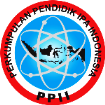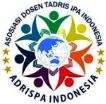Profile of Prospective Teachers Based on 3R Eco Lifestyle: Case Study of Biology Education Students at Riau Islamic University
Abstract
Eco-lifestyle should be started from ourselves, participation is needed to support an environmentally friendly lifestyle. This research is intended to find out the 3R-based Eco-lifestyle Profile of Biology Education Students at Riau Islamic University Pekanbaru by employing survey methodology. The population consisted of 124 students of Biology Education Faculty of Education and Teacher Training Riau Islamic University Pekanbaru. The sampling process was carried out using a saturated sample method where the entire population was used as a sample. The instrument used is a closed questionnaire, containing questions that have been validated by material experts. The empirical test of the questionnaire obtained is carried out reliability test using the IBM SPSS Statistics 20 program. The reliability test uses the Alpha Cronbach technique with the SPSS 22 program. Distribution of the questionnaire to students is performed by utilizing Google form, containing 3 indicators of Reduce, Reuse, and Recycle totaling 30 questions. By using a Likert scale, it was obtained three categories such as strongly agree, agree, and disagree where respondents are asked to give a checklist mark (√) to fill out the questionnaire. The data collection technique used a questionnaire, qualitative descriptive data analysis, and data on the results of respondents' answers using the IBM SPSS Statistics 20 program. The research data obtained a value of Reduce 77.32, Reuse 79.56, and Recycle 77.39 good categories. The average (Reduce, Reuse, Recycle) obtained a value of 78.09 good category. It is concluded that the 3R-based Eco-lifestyle profile of Biology Education students at Faculty of Education and Teacher Training Islamic University of Riau Pekanbaru is in the good category.
Keywords: Eco-lifestyle, Profile, 3R
Full Text:
PDFReferences
Adib, P. I. S., Nursalim, R., & Sumartono, E. (2021). 3R System Waste Management Planning Model in Bengkulu University Environment. SINTA Journal, 2(2), 1–10.
Amalia, F., & Putri, M. K. (2021). Analysis of Inorganic Waste Management in Sukawinatan Palembang City. Swarnabhumi Journal, 6(2), 134–142. https://jurnal.univpgri-palembang.ac.id/index.php/swarna/article/view/5452
Andriyani, M., & Hilmi, M. I. (2020). The Role of Kampoeng Recycle in the Formation of Waste Care Community Behavior in Taman Gading Housing, Jember Regency. Learning Community: Out-of-School Education, 4(2), 25. https://doi.org/10.19184/jlc.v4i2.21291
Arisona, R. D. (2018). 3R (Reduce, Reuse, Recycle) Waste Management in Ips Learning to Foster Environmental Care Character. Al Ulya : Journal of Islamic Education, 3(1), 39–51.
Badriya, H., Zulfan, S., & Suardi, T. (2020). Implementation of The Reduce, Reuse Recycle (3R) Program of Permata Bunda Waste Bank in Waste Management in The Environment of High Schools In Pangkalan Kerinci District. Jurnal Ilmu Lingkungan, 1, 142–152.
Eprianti, N., Himayasari, D., Mujahid, I., & Srisusilawati, P. (2021). ANALYSIS OF 3R IMPLEMENTATION IN WASTE MANAGEMENT. Journal Ecoment Global, 6(2), 179–184.
Escario, J. J., & Rodriguez-Sanchez, Carla Casaló, L. V. (2020). The Influence of Environmental Attitudes and Perceived Effectiveness on Recycling, Reducing, and Reusing Packaging Materials in Spain. Waste Management, 113, 251–260.
Helmi, H., Nengsih, Y. K., & Suganda, V. A. (2018). Increasing Environmental Awareness Through Coaching The Application of the 3R System (Reduce, Reuse, Recycle). JPPM (Journal of Education and Comunity Empowerment), 5(1), 1–8. https://doi.org/10.21831/jppm.v5i1.16861
Indonesia, R. (2012). Peraturan Menteri Lingkungan Hidup Nomor 13 Tahun 2012 tentang Pedoman Pelaksanaan Reduce, Reuse, dan Recycle Melalui Bank Sampah. In Jakarta Pemerintah Pusat.
Jambeck, J. R., Geyer, R., Wilcox, C., Siegler, T. R., Perryman, M., Andrady, A., Narayan, R., & Law, K. L. (2015). Plastic Waste Inputs From Land Into The Ocean. Science, 347(6223), 768–771. https://doi.org/10.1126/science.1260352
Juliandi. (2023). Source-Based Waste Management Model Using the Reduce-Reuse-Recycle (3R) System at TPS 3R Baktiseraga Village. Jurnal Pendidikan Geografi Undiksha, 10(3), 301–307. https://doi.org/10.23887/jjpg.v10i3.50529
Kusumo, R. A. B., Charina, A., Sukayat, Y., & Mukti, G. W. (2017). Study of Environmentally Friendly Education and Consumer Characteristics and its Effect on Environmentally Friendly Attitudes and Behavior. Journal of Family and Consumer Sciences, 10(3), 238–249. https://doi.org/10.24156/jikk.2017.10.3.238
Luciana, S., & Nurjanah. (2017). Persuasive Communication of Environmental Ambassadors in Improving Environmentally Friendly Lifestyles in the Climate Village Program of the Pekanbaru City Environment Agency. Jom Fisip Unri, 4(2).
Nasution, R. S. (2015). Various Ways to Deal with Plastic Waste. Elkawnie: Journal of Islamic Science and Technology, 1(1), 97–104. https://jurnal.ar-raniry.ac.id/index.php/elkawnie/article/view/522
Nurfaida, Mustari, K., & Dariati, T. (2015). Penerapan Prinsip 3R (Reduce, Reuse Dan Recycle) Dalam Pengelolaan Sampah Melalui Pembuatan Pupuk Organik Cair Di Perumahan Kampung Lette Kota Makassar. Jurnal Dinamika Pengabdian, 1(1), 24–37. https://journal.unhas.ac.id/index.php/jdp/article/download/2187/1207/3936
Purnomo, P., & Palupi, M. S. (2016). DEVELOPMENT OF MATHEMATICS LEARNING OUTCOMES TESTS SOLVING PROBLEMS WHICH RELATES TO TIME, DISTANCE AND SPEED FOR CLASS V STUDENTS. Jurnal Penelitian (Edisi Khusus PGSD), 20(2), 151–157.
Purwaningrum, P. (2016). Efforts to Reduce Plastic Waste in the Environment. Indonesian Journal of Urban and Environmental Technology, 8(2), 141–147. https://doi.org/10.25105/urbanenvirotech.v8i2.1421
Qodriyatun, S. N. (2018). Improving Community Welfare Through Waste Management Based on Uu No. 18 of 2008. Aspirasi: Jurnal Masalah-Masalah Sosial, 18, 21–34. http://jurnal.dpr.go.id/index.php/aspirasi/article/view/450
Rezai, G., Kit Teng, P., Mohamed, Z., & Nasir Shamsudin Senior Lecturer, M. (2013). Going Green: Survey of Perceptions and Intentions Among Malaysian Consumers. International Business and Management, 6(61), 104–112. https://doi.org/10.3968/j.ibm.1923842820130601.1125
Riskina, M. D. (2019). Descriptive Study of Environmental Care Attitudes Through The Adiwiyata School Program at Sman 2 Pamekasan. Kajian Moral Dan Kewarganegaraan, 7(1), 1–15.
Sabihi, S. B., Husain, W., & Wantu, S. M. (2021). THE EFFECTIVENESS OF THE 3R (REDUCE, REUSE, AND RECYCLE) PROGRAM IMPLEMENTED THROUGH WASTE BANKS IN EMPOWERING THE COMMUNITY ECONOMY IN GORONTALO (A Case Study of Parent Waste Bank in Wongkaditi Timur Kota Utara Gorontalo). Public Policy Journal, 1(2), 75–84. https://doi.org/10.37905/ppj.v1i2.481
Silpina, & Pritandhari, M. (2020). Pengembangan Majalah Ekonomi (Makomi) Terintegrasi Nilai Islam Sebagai Media Pembelajaran Sma Negeri 4 Metro. PROMOSI (Jurnal Pendidikan Ekonomi), 8(1), 37–49. https://doi.org/10.24127/pro.v8i1.2862
Singkam, A. R., & Putri, M. F. (2022). Analysis of the Application of 3r (Reduce, Reuse, Recycle) in Communities Along the Siring Flow of Pondok Besi Village, Bengkulu City. Journal of Environmental Education and Sustainable Development, 23(01), 17–27. https://doi.org/10.21009/plpb.v23i01.21268
Sugiyono. (2019). Quantitative, Qualitative, and R&D Methods. ALFABETA.
Sujarweni. (2014). SPSS untuk Penelitian. Pustaka Baru Press.
Widaningsih, S., & Qana’a B, M. (2020). Jurnal Teknologi Informasi dan Manajemen (JTIM) Pengaruh Orientasi Environmental Value dan Green Lifestyle Terhadap Perilaku Green Consumption Pada Remaja di Kota Bandung 2. https://journals.telkomuniversity.ac.id
Wong, S. N., Chandra, C. M., Ardita, S., Muljadi Art, S., & Kuistono, C. A. (2022). Analisis Konsep 3R Terhadap Pengelolaan Sampah di Jakarta Berdasarkan Peraturan Perundang-Undangan yang Berlaku. Jurnal Kewarganegaraan, 6(4), 6635–6641. https://eppid.pu.go.id/
Yanto. (2008). Implementation of Agricultural Extension Policy on Field Agricultural Extension (PPL) at the Karawang Regency Agricultural, Fisheries and Forestry Extension Implementation Agency (BP4K). Jurnal Implementasi Kebijakan Penyuluhan Pertanian, 2, 1–16.
DOI: http://dx.doi.org/10.24014/jnsi.v6i1.20443
Refbacks
- There are currently no refbacks.

Journal of Natural Science and Integration
E-ISSN: 2620-5092 P-ISSN: 2620-4967
Published By:
Department of Science Education, Faculty of Education and Teacher Training,
State Islamic University of Sultan Syarif Kasim Riau, Indonesia
Mailing Address:
Jl. H.R Soebrantas Km. 15 No. 155
Kelurahan Simpang Baru
Kecamatan Tuah Madani, Pekanbaru, Riau, Indonesia
Email: jnsi.tadrisipa@uin-suska.ac.id
Indexed By:
Journal of Natural Science and Integration is licensed under a Creative Commons Attribution 4.0 International License.


_-_Copyy2.png)






.jpg)
.png)
.jpg)
.jpg)




